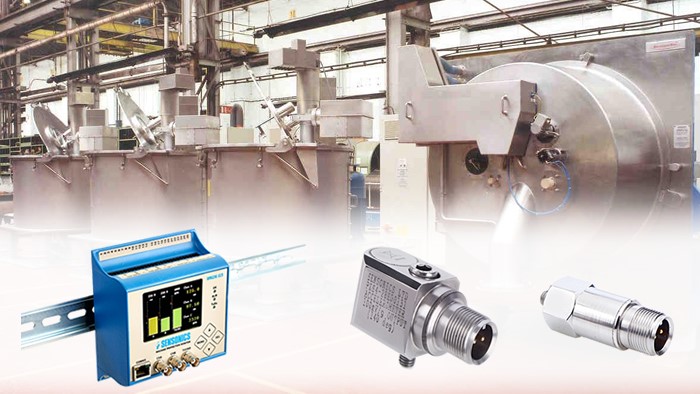Condition monitoring sensors are an essential component in many of todays’ manufacturing systems and thanks to the rapid expansion and application of digital technologies, their complexity and sophistication continues to be developed and improved. A good example of this is the range of industrial accelerometers available from Condition Monitoring specialists SENSONICS.
Accelerometers are commonly used on centrifuges, especially in applications where load imbalance, high speeds, and large masses with significant kinetic energy can pose risks to both operators and equipment. So, how and why are accelerometers relevant to protecting centrifuges in these contexts and what are the important challenges to consider?
Load Imbalance Detection
Centrifuges typically operate by rapidly spinning loads and any imbalance in the distribution of mass can lead to unwanted uneven forces and potentially damaging vibrations. Accelerometers are an effective way of monitoring these vibrations and imbalances.
High-Speed Monitoring
Accelerometers are also extremely effective in monitoring the high-speed rotations of the centrifuge rotor, as excessive speeds can amplify the effects of imbalances whilst helping to ensure that the equipment operates within safe speed limits. If an imbalance is identified, corrective actions can be taken to redistribute the load, adjust the sample distribution, or perform maintenance to avoid excessive vibrations that could lead to equipment damage or failure.
Catastrophic Failure Prevention
Centrifuges, especially those dealing with large masses at high speeds carry a significant amount of kinetic energy and their catastrophic failure can result in the release of this energy, posing a severe danger to life, equipment and property.
Accelerometers are used to continuously monitor vibrations and can identify any abnormalities that may include catastrophic failure and therefore allow for immediate shutdown procedures and preventative actions to mitigate risks.
Sensonics have expertise in understanding the performance criteria for accelerometers used across a wide range of frequencies. These piezo-electric seismometers provide very high output of up to 50V/g, measuring low frequencies down to 0.1Hz with an ultra-low noise floor. Their unmatched experience in understanding and applying piezo-electric seismometer technology underpins the success of Sensonics range of ‘best-in-class’ superior noise performance PZS Industrial Accelerometers, which are ideal for industrial machine condition monitoring applications.
The PZS range of low-noise accelerometers are an important part of the Sensonics range of transducers that also includes PZV, PZDC and VEL/G velocity vibration sensors, XPR eddy current proximity probes, CS capacitive air gap sensors and a wide range of LVDT displacement transducers. This extensive range means there is a solution for most vibration, position and shaft speed measurement applications, such as monitoring pumps, fans, motors, centrifuges, gearboxes, compressors and process equipment.
Many of the transducers have variants which are suitable for harsh or challenging applications including low frequency, high temperature, submersible, high pressure, radiation and intrinsically safe certifications. These include ATEX / UKEx/ IECEx / PESO for hazardous areas where potentially explosive dusts or gases prevail.
With a wide range of industry standard mechanical formats, output signals and power supply requirements, as well as simplified 4-20mA process output solutions, Sensonics are likely to have the right solution either for a new application or for the replacement of unreliable or obsolete equipment.



